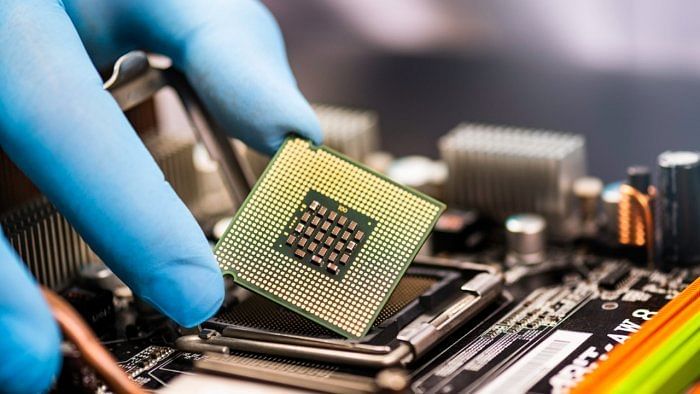
By Shira Ovide
Most people need toilet paper and computer chips every day, and yet we rarely think about either of them.
That changed during the coronavirus pandemic when first bathroom rolls and then chips became scarce. Computer chips aren’t so disposable, but they are equally essential as electronic brains for products like smartphones, cars, airplanes and most modern appliances. Chip shortages have stalled new car manufacturing, made rental cars harder to find and complicated business even for the dog washing industry.
I spoke to Don Clark, who has written about computer chips for years, about the importance of chips, why the US government is obsessed with making more of them in America, and how a new chip mania is a revenge for the nerds.
What are computer chips used for?
Computer chips are like tiny brains or memory receptacles. This makes them important for pretty much everything in modern life. The obvious places are electronics like computers, smartphones, video game consoles and voice-activated speakers.
But chips are also in products that are used to track milk production of dairy cows and to make sure produce in trucks stays at an appropriate temperature. A modern car can have several thousand chips, including for the ignition, brakes and entertainment system. This year, the production of $50,000 cars is being held up because of a lack of $1 computer chips.
Right, how did chips lead to a freeze in car manufacturing?
Last year, when the pandemic first hit, automakers estimated that many people wouldn’t want to buy cars, and they cut orders for computer chips. When it turned out that car sales increased, the companies tried to order more chips on the fly. But the chip manufacturers had already moved on. They had shifted production to fill orders for products like phones and game consoles.
Are chip shortages unusual?
No, but shortages are usually confined to one particular type of chip. What’s unusual about this year is there’s not enough of many different kinds of computer chips, because of a combination of some disruptions related to the pandemic and overwhelming demand for more and more chips for everything.
To give just one example, each new smartphone with a 5G internet connection has 100 little components in it called filters that connect to all the different frequencies. That’s 100 computer chips for just a single function.
Q: When will the shortages improve?
Companies are trying to crank out more chips, but it’s difficult to react quickly. Chip companies are also trying to stop customers, including car companies, from ordering double the number of chips they really need just to be sure they get some. But shortages will probably last until 2022 and could get worse before they get better. That’s partly because many scarce chips come from older factories that are hard to upgrade.
Congress and President Joe Biden seem very likely to back billions of taxpayer dollars to make more computer chips in the United States. Why?
Shortages of products like personal protective equipment made in China have gotten the public and policymakers to discuss the downsides of having essential products made outside the United States.
Many advanced computer chips are made in Taiwan, and that makes the Pentagon in particular nervous about not being able to get essential computer chips if relations between Taiwan and China get worse. And the US government wants to be more self reliant in the case of emergencies, like earthquakes, in Taiwan.
Another issue is global competitiveness. Countries including Ireland, Taiwan and Israel give boatloads of government incentives to factories that produce chips. Intel, the big American computer chip company, doesn’t really need US taxpayers’ money. But it wants to ensure that the company isn’t doing vastly worse by making its chips in the United States.
Forgive me, but the computer chip industry is very nerdy. How do people in the industry feel about being such a hot topic?
Yes, this has been the boring old industry of tech, like steel making. That’s changing, partly because of the attention on chip shortages but that’s not the only reason.
I wrote an article Friday about the amount of investments in new computer chip companies — about eight times the dollars invested in 2016. Young people who might have formed software startups a few years ago are now choosing to start chip companies. There is a lot of interest and excitement in chips now, and the people in the industry feel that it’s nice to be seen as really important.